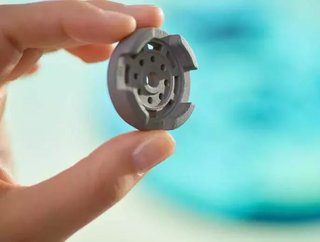VW introduces 3D printing into mass vehicle production

Volkswagen has become the first automotive manufacturer to use metal 3D printing processes in its vehicle production, the company has revealed.
The automotive giant is to implement the “HP Metal Jet” process that simplifies and speeds up metallic 3D printing productivity by up fifty times compared with other 3D printing methods.
The project is being delivered with printer manufacturer HP and component manufacturer GKN Powder Metallurgy, with all stakeholders presenting the new process for the first time at the International Manufacturing Technology Show in Chicago.

Dr Martin Goede, Head of Technology Planning and Development, Volkswagen, said: “Automotive production is facing major challenges: our customers are increasingly expecting more personalisation options.
“At the same time, complexity is increasing with the number of new models. That’s why we are relying on state-of-the-art technologies to ensure a smooth and fast production. 3D printing plays a particularly important role in manufacturing of individual parts.”
A Volkswagen vehicle is manufactured from 6,000 to 8,000 different parts, but previous 3D printing could only be used for the special production of individual parts or prototypes.
By contrast, Volkswagen says the additive 3D Metal Jet technology from HP enable the production of a large number of parts using 3D printing for the first time – without having to develop and manufacture the corresponding tools.
SEE ALSO:
It significantly reduces the time required to manufacture parts. As a result, the process is now also suitable for the production of large quantities in a short period of time.
“That’s why the new HP Metal Jet platform is an important step into the future for us as an automotive manufacturer, but also for the entire industry. And we look forward to helping shape this development and thus creating further added value for our customers in the future,” Dr Goede added.

As early as next year, GKN Powder Metallurgy intends to establish a process chain geared toward automotive production in collaboration with Volkswagen. The first small (design) components are to be used to further develop the technology so that the first structural components for mass-production vehicles can be printed within two to three years.
“A complete vehicle will probably not be manufactured by a 3D printer any time soon, but the number and size of parts from the 3D printer will increase significantly,” explained Dr Goede.
“Our goal is to integrate printed structural parts into the next generation of vehicles as quickly as possible. In the long term, we expect a continuous increase in unit numbers, part sizes and technical requirements – right up to soccer-size parts of over 100,000 units per year.”
- How can additive manufacturing benefit the supply chain?Technology
- Wipro: Disrupting the Supply Chain Model – the 3D wayDigital Supply Chain
- Is 3D Printing the missing link in your supply chain?Digital Supply Chain
- HP: How 3D Printing is Solving Supply Chain DisruptionsDigital Supply Chain






